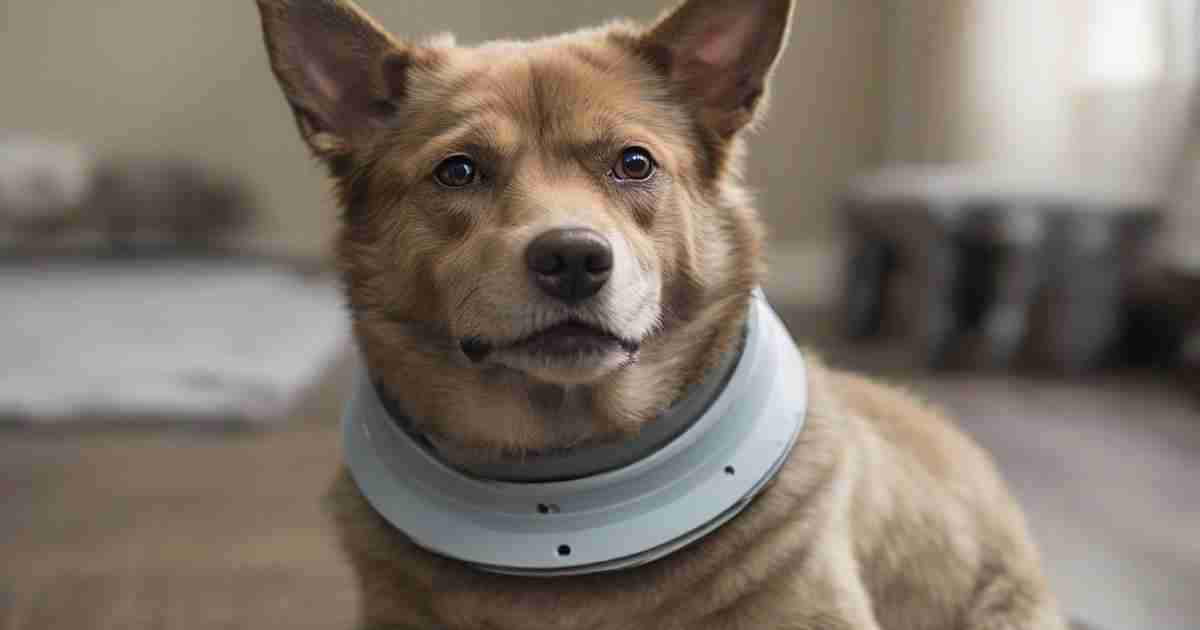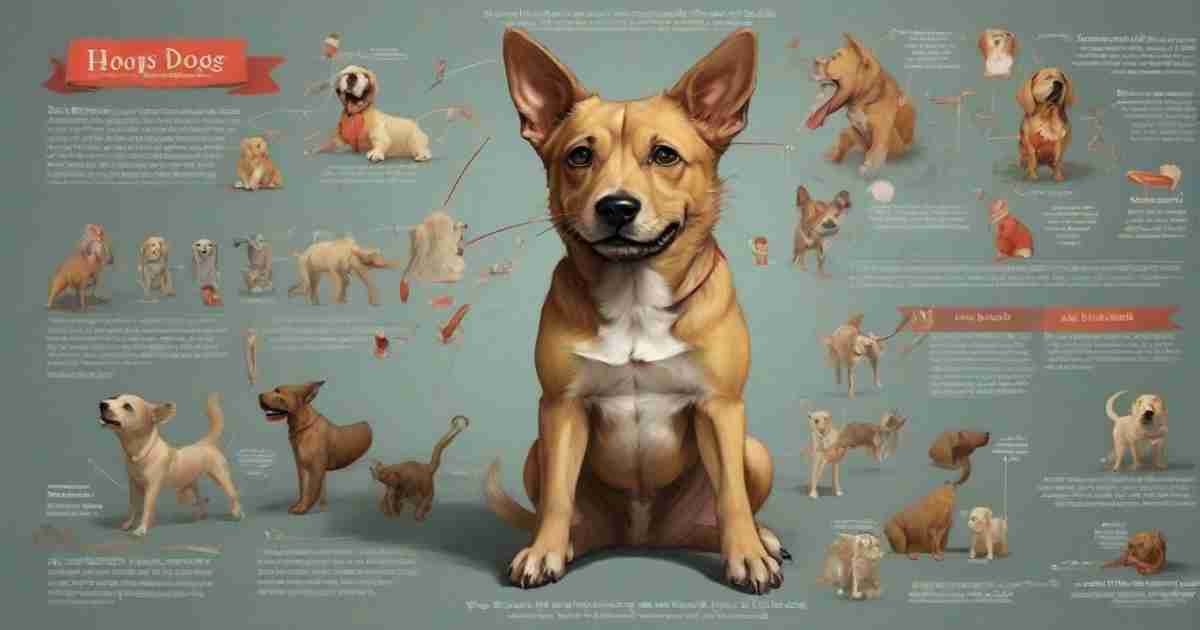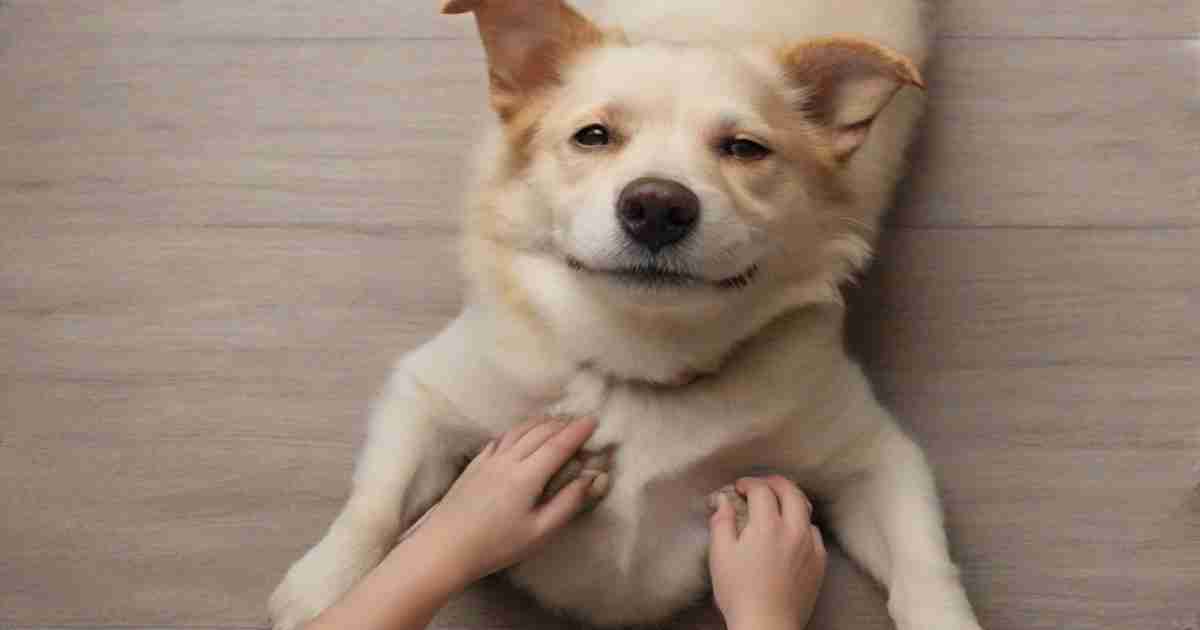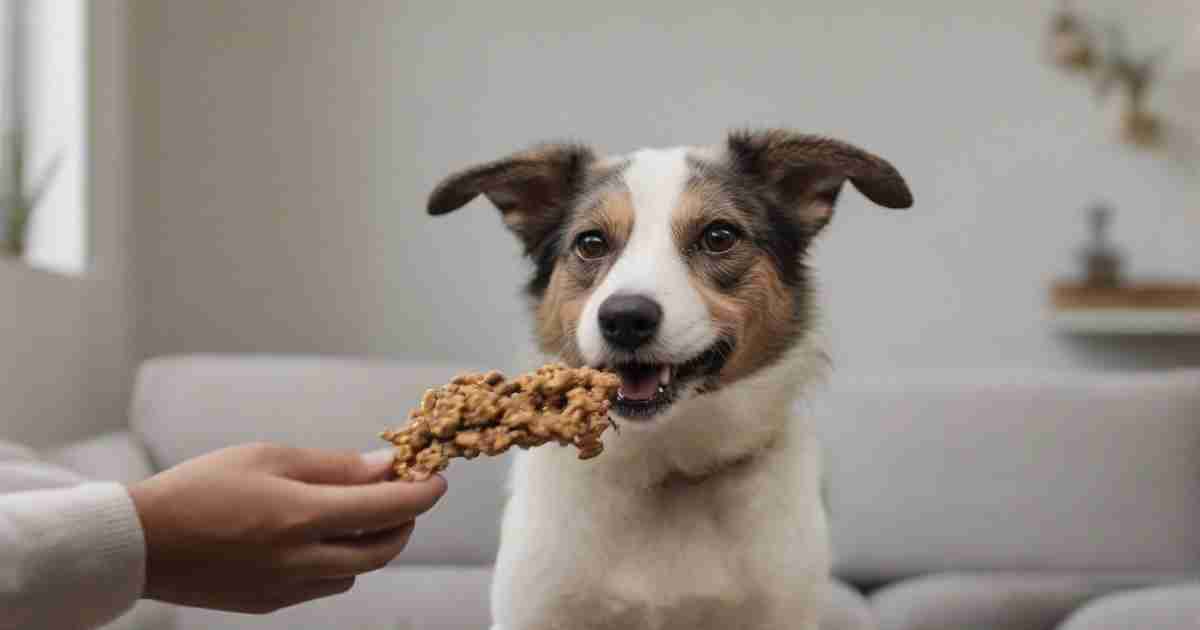Have you ever had hiccups, and that annoying hic sound keeps interrupting your day? As unpleasant as they can be for humans, dogs hiccups can be just as bothersome and frustrating for our four-legged friends.
Unlike humans, who occasionally get hiccups that resolve independently, hiccups in dogs can be more persistent and lead to episodes lasting several hours or even days. As a dog owner, hearing your pup uncontrollably hic over and over can quickly go from cute to concerning.
What Exactly Causes Hiccups in Dogs?
Uncontrolled spasms of the diaphragm, the sheet of muscle below the lungs responsible for breathing, cause hiccups. The spasms occur when the nerve pathway between the brain and diaphragm misfires, leading to abnormal and abrupt breathing rhythms.
What triggers this pathway disruption in dogs, leading to bouts of hiccups? Potential culprits include:
- Eating or drinking too rapidly
- Excitement, stress, or anxiety
- Gastroesophageal reflux
- Respiratory irritation from dust, pollen, or chemicals
So next time your pup starts excessively hiccuping, examine what activities preceded the episode. Were they anxiously barking at the mail carrier or gobbling dinner within seconds? Identifying the trigger can allow you to prevent or minimize future hiccuping fits.
When Hiccups Become Concerning
Occasional short-lived hiccups are not alarming and even mildly entertaining. But prolonged hiccups lasting hours or days can quickly become concerning.
Extended hiccup episodes can progress to:
- Fatigue from interrupted sleep and rest
- Reduced appetite leads to weight loss
- Dehydration
- Other systemic health issues
If home remedies don’t resolve your dog’s hiccups within a day or they lose interest in food, seek veterinary help immediately.
While not inherently dangerous, persistent hiccups could stem from or lead to larger medical issues requiring prompt treatment.
Equipped with an understanding of the causes, risks, and treatments for doggie hiccups, let’s explore some simple at-home remedies to give your pup relief and peace…
Don’t Jump the Gun: Wait It Out
Before springing into action with an arsenal of hiccup remedies, pause. Believe it or not, the best initial approach for dogs’ hiccups may be to wait it out.
- For mild or early cases of the hiccups, they may resolve on their own over a short period.
- Jumping to intervene could end up causing more stress and exacerbating the episode.
- Allow your dog’s system an opportunity to self-correct
What’s Considered Normal Hiccup Duration for Dogs?
- Puppies tend to have short bouts due to excitement or eating too fast.
- These harmless cases typically resolve within a few minutes
- For adult dogs, occasional hiccups lasting less than a day are not unusual
Experts typically recommend waiting about 2 hours before pursuing active treatment for hiccups in adult dogs.
Why 2 hours? Studies show that humans tend not to experience hiccup episodes lasting more than 48-72 hours. Assuming our canine friends share a similar biological hiccup cut-off point, allowing 1-2 hours gives time for resolution without letting cases grow severe.
Should You Extend the Wait?
While the standard advice is to wait 2 hours before intervening, consider allowing longer if:
- Your dog is relaxed and resting
- There are no signs of distress
- Episodes are infrequent
As pesky as the hic sounds are, occasional hiccups don’t require rushing to apply remedies if your dog still appears cozy. Let them be and monitor over the next several hours.
On the flip side, don’t hesitate to intervene sooner if:
- Hiccups are frequent (every few minutes)
- Your dog appears in discomfort
- Episodes persist through activities
Use your best judgment based on severity. The next sections will explore active steps to give your pup relief.
Give Their Throat a Rub
If your pooch’s hiccups persist past the waiting period, it’s time to take action. One simple hands-on approach to ease your pup’s distress is to provide a gentle neck and throat massage.
Why Try Massage for Dogs Hiccups?
- Physically stimulating nerves in the throat and neck may help interrupt the spasmodic pattern causing the hiccups.
- Pet owners report anecdotally that a nice neck rub relieves their dogs.
- At a minimum, a soothing massage signals your dog to relax and stay calm.
Step-By-Step Guide to Doggie Throat Massage
Follow these steps to relieve your hiccuping pup:
- Have them sit or lie in front to get comfortable access to their neck. Give verbal praise and pets to keep them relaxed.
- With one hand, gently stroke the sides of their throat from jawline to chest using gentle pressure. Repeat for several minutes.
- Use your thumb and fingers to apply mild circular pressing motions to massage muscles around the esophagus. Note: avoid direct pressure on the trachea.
- After several minutes of massage, give an affectionate neck scratch under the collar as positive reinforcement.
- Take pauses and allow the dog to rest if they exhibit signs of discomfort or distress from the massage technique.
Massaging Tips
- Always start very gently, gradually increasing the pressure
- Keep one hand cradling under the jaw for support
- Pay attention to the dog’s reaction – more massage ≠ , better outcome
- End each session by lavishing beloved neck scratches
While not a cure-all for hiccups, some hands-on TLC may expedite controlling those pesky spasms. What dog doesn’t adore a good neck rub?
Got Water? Give Some to Your Pup
Water is vital for dogs’ health and wellbeing. But a few sips of cool, refreshing water can also help resolve pesky bouts of hiccups in canines.
Why Try Giving Water for Hiccups?
- Lapping up water requires coordinated breathing, which may “reset” abnormal hiccup rhythms.
- It also helps ensure your dog stays hydrated if hiccups result in reduced water intake over time.
- The cold sensation and temperature change from water may interrupt nerve spasms.
Doggie Hiccup Relief Water Tactics
Follow these tips when using water to ease episodes of dog hiccups:
- Have a bowl or cup filled with cool but not icy water readily available.
- Position your hiccuping dog to stand in front of the vessel.
- Encourage them to slowly lap small amounts at intervals using verbal cues like “Water, drink!”
- Start with a few tongue laps at a time, allowing short breaks in between. No need for them to gulp extensive volumes.
- Repeat the cycle of drinking with short breaks for 5-10 minutes.
Signs It’s Working?
It’s a good sign if:
- Your dog begins taking larger gulps instead of tentative sips.
- The rhythm of hiccups starts to slow down.
- Your pup appears less distressed.
- Hiccups stop entirely! But if it is not fully resolved, try another remedy next.
For many dogs, a short water-drinking training interlude distracts the system and promptly stops those aggravating hiccup spasms. Stay hydrated, pups!
Cure Hiccups With Yummy Treats
What pup doesn’t get excited by the prospect of tasty treats? As it turns out, a few small bites of your dog’s favorite nibbles could also relieve hiccups.
Why Try Treats for Dogs Hiccups?
Administering a chain of tiny treat bits engages several biological mechanisms for ceasing hiccups:
- Chewing motions help regulate erratic breathing
- Swallowing helps massage the esophagus
- Taste stimulation distracts the nervous system
- It makes pups happy!
On top of the physical benefits, giving treats is also a psychological trick to relax anxious dogs and redirect their mind away from the hiccup episode.
Step-By-Step: Treats to Stop Hiccups
Follow these instructions for treat-assisted hiccup relief:
- Start by having your dog sit or lie down calmly. Offer verbal assurance if needed.
- Select small, soft treats your pup loves, like bits of cheese, hot dogs, and chicken. Avoid crumbly biscuits.
- Present treats slowly, one tiny portion at a time. Allow your dog to fully swallow each bite before giving another.
- Repeat for 5-10 minutes nonstop. Bits should be tiny but constant to leverage chewing motions.
- Pair treats with affectionate pets to reinforce relaxation.
- Stop giving treats if your dog refuses interest or appears distressed.
While not nutritionally balanced, a few minutes of people’s food morsels may get those annoying hiccups under control. Just don’t tell the vet!
Stay Chill – Your Pup Feeds Off Your Vibes
As aggravating and even alarming as bout after bout of dog hiccups may be, it’s crucial for owners to remain composed.
Why? Dogs innately key in on human body language and energies. If you’re stressed out, they pick up on that anxiety, which can worsen or prolong their episode.
What Science Says
Research verifies that dogs become attentive to human emotional states using the following cues:
- Facial expressions
- Body movements
- Voice tones
- Hormones released
In particular, dogs have learned to recognize signs of anger or distress in their human caretakers.
How to Send Calm Vibes
When your pup starts excessively hiccuping, make a conscious effort to transmit chill, tranquil vibes by:
- Taking long, deep breaths
- Smiling gently
- Speaking in a soft, soothing voice
- Giving relaxed pets and scratches
Even if inside you feel like screaming in frustration, resist! Maintain an outward appearance of patience and compassion. Fake it till you make it, as they say. This engenders trust and security in your dog versus exacerbating the problem.
Anxiety-Busting Bonus Tips!
Additionally, try to mitigate stressful stimuli by:
- Dimming bright lights
- Playing soothing music
- Removing rowdy kids or company
- Bringing them into a quiet room
Sometimes, all a hiccuping dog needs is a little R&R and TLC!
Ice, Ice Baby! Soothe Hiccups with a Cold Compress
What’s the go-to home remedy for bumps, sprains, and headaches? An ice pack, of course! The numbing sensation of chilled temperatures can be soothing medicine for all ailments. This is true for humans and for hiccuping canines alike.
The Logic Behind Cold Compresses for Dogs
Applying something ice-cold can ameliorate hiccups in two ways:
- The sensation distracts nerves and disrupts spasmodic breathing patterns
- It elicits a mammalian diving reflex, constricting blood vessels
This innate biological reaction is designed to conserve oxygen when mammals plunge into frigid waters. But it also resets wonky nerve signals, causing those obnoxious hiccups.
Directions to Apply a Cold Compress
Follow these steps to leverage the power of cold therapy:
- Fill a ziplock bag with ice cubes or frozen vegetables like peas.
- Wrap the bag in a light towel or cloth – direct extreme cold may harm the skin.
- Have the dog sit or lie down in a settled position.
- Apply to the throat and chest for 5-10 minutes maximum.
- Watch for signs of distress or shivering
- Provide affection and verbal assurance during the process.
- Alternate with 5 minutes of rest at room temperature.
While not a magical instant cure, the cold stimulation method leverages body chemistry to get those pesky spasms under control. Just be careful not to overdo it! Now go grab some frozen peas…
Settle That Tummy with Some Tums
If you deal with heartburn, you likely keep antacids like Tums on hand to tame acid indigestion. Like humans, gastrointestinal distress can also trigger nonstop hiccup episodes in canines. And yes – giving an over-the-counter antacid made for humans could help!
How Do Antacids Stop Hiccups?
The muscles of the diaphragm that control breathing sit right alongside the stomach. Acid agitating the digestive tract can irritate the phrenic nerves, causing them to spasm = hiccups!
Antacids containing calcium carbonate or magnesium hydroxide act to:
- Neutralize stomach acid
- Soothe GI irritation
- Prevent acid reflux stimulating the diaphragm
Thus, they address the root tummy troubles pestering those phrenic nerves.
Choosing a Dog-Safe Antacid
Consult your vet, but common OTC antacid tablet brands like Tums, Maalox, or Mylanta are generally considered safe for dogs.
When purchasing, select unflavored varieties free of sweeteners. Dosage varies based on weight – talk to your vet – but 1-2 tablets administered with food is typical.
Administering Tums to Your Pup
Since tablets taste bitter, getting your pooch to take antacids can be tricky:
- Crush tablets into a powder to mix easily with wet food
- Follow immediately with a treat chaser
- Ensure tablets are consumed – do not let the dog spit them out!
With tummy acid neutralized, those irksome hiccups should hopefully subside shortly!
Stop Hiccups With Breathing Training
Hiccups result from your pup’s diaphragm and breathing muscles seizing out of rhythm. Teaching them to take long, slow breaths can help regulate the abnormal patterns and reduce spasms. Think of it as a bit of doggie yoga – in through the nose, out through the mouth.
The Logic Behind Breathing Techniques
Coaching your pooch to inhale sustained deep breaths that fill their entire lung capacity may help override the hiccup reflex. Controlled exhales assist by:
- Stimulating the vagus nerve to reduce diaphragm irritation
- Relaxing the thoracic muscles
- Discouraging quick, erratic breaths that beget more hiccups
This gives their body a hard reset break from the repeated involuntarily seizure of muscles.
Step-By-Step Breathing Exercises
- Have the dog sit calmly in front while you kneel to establish eye contact.
- Place one hand gently on their rib cage to feel it expand with inhales.
- Take an obvious, slow, deep breath yourself – lead by example!
- Encourage them to take slow verbal inhales through the nose, pausing briefly, then long exhales out through the mouth.
- Continue for 2-3 minutes of deep huffing and puffing breathwork. Reward with praise and pets!
While a silly activity, mindful breathing redirects your pup’s awareness and nerves to break the hiccup cycle. Give it a shot for some giggle-worthy doggie yoga time!
Rub Their Chest and Ribs To Soothe Hiccups
If your pooch’s hiccups originate from muscle spasms rather than stomach troubles, some hands-on TLC targeting the core breathing apparatus may help alleviate symptoms. It’s time to put those dog dad/mom massage skills to work!
Why Try Chest Massage?
Gently kneading and stimulating the intercostal muscles between the ribs serves to:
- Loosen tense chest and ribs contractors causing spasms
- Increase blood flow to expand lung capacity
- Distract nerves and break the hiccup rhythm
Combined with verbal cues to “relax,” a bit of upper body rubdown therapy taps into the parasympathetic nervous system to mitigate distress.
Administering A Soothing Chest Massage
Follow these handy tips for quick hiccup relief via chest massage:
- Have the dog sit or lie on their side in a calm, relaxed position
- Warm hands first to avoid startling with cold palms
- With mild, consistent pressure, use fingertips to massage ribs and chest
- Avoid direct pressure over the trachea and throat
- Continually praise and reassure the dog throughout the process
- Cease immediately if the dog shows signs of discomfort
While not a standalone cure for chronic hiccups, a comforting chest rub paired with other techniques can expedite restoring normal breathing for frustrated pups.
Battling Persistent Hiccups? Consult Your Vet About Medications
Simple at-home remedies often relieve healthy adult dogs experiencing random or situational hiccups. However, if hiccups become a chronic condition interfering with your pup’s quality of life, prescription medications could be warranted.
Hiccup Medications for Canines
If home techniques and diet changes fail to end repeat bouts spanning days at a time, consult your veterinarian about pharmaceutical options, including:
- Chlorpromazine: tranquilizer that suppresses muscle spasms
- Baclofen: muscle relaxant
- Metoclopramide: improves gastrointestinal mobility
- Haloperidol: antipsychotic that inhibits hiccup triggers
These drugs act on nerves and muscles to reduce contractions, causing the involuntary intake of breath. While not used as a routine treatment, they can provide a reset after all else fails.
Weighing Risks Vs. Relief
As with any medication for dogs or humans, carefully weigh the pros and cons with your vet. Consider factors like:
- Severity and longevity of hiccup episodes
- Adverse effects on nutrition and hydration
- Presence of other underlying illness
- Risk factors of medications
A “wait and see” approach with home care works for most cases. But medical solutions can grant relief if hiccups become debilitating.
Could Your Pup’s Diet Be Causing Pesky Hiccups?
As the adage goes, “You are what you eat.” The same applies to our canine companions. If your dog grapples with recurrent bouts of hiccups, their kibble could be the culprit behind those irritating spasms.
How Food Prompts Hiccups
Certain ingredients commonly found in commercial dog foods might trigger digestive upset that spurs hiccups, such as:
- Artificial preservatives
- Harsh protein sources
- Soy, corn, wheat fillers
- Too much fat or fiber content
These problematic contents can directly irritate the phrenic nerve or cause systemic inflammation that disrupts nerve signaling.
Embark on an Elimination Diet
Working with your vet, put your pup on an elimination diet trial to pinpoint if a specific ingredient prompts tummy troubles and subsequent hiccups. This entails:
- Switching to a limited novelty protein diet (fish, kangaroo, etc.)
- Reintroducing original ingredients slowly, one at a time
- Keeping a journal to track symptoms carefully
While tedious, an elimination diet can zero in on foods that don’t agree with your dog’s constitution. Adjust their diet accordingly for sustained digestive harmony and fewer pesky hiccups!
Hiccup Helpers: Supplements for Soothing Digestion
If your dog’s bouts of the hiccups correlate with tummy troubles, supplementing their diet with digestive aids could help mitigate those irritating diaphragm spasms.
Supplements That Soothe
Discuss adding in over-the-counter supplements with your vet, such as:
- Probiotics: Promote good gut bacteria to ease digestion and nutrient absorption. It can reduce inflammation and gastrointestinal distress.
- Slippery Elm: Herbal remedy derived from tree bark to coat and protect the stomach lining.
- Ginger: Anti-inflammatory properties and aromatic compounds to settle upset stomachs. It may curb hiccup triggers.
- Peppermint: Menthol naturally calms GI muscles to prevent spasms. Peppermint oil specially formulated for dogs can safely ease tummy troubles.
While there is no silver bullet cure, these digestive helpers leverage the power of plants to restore equilibrium internally. They may facilitate preventing future flare-ups of uncomfortable hiccups.
Administering Supplements
Always consult your vet before introducing new substances and follow their dosage guidance. Typical starting guidelines:
- Probiotic: 1 billion CFUs per 10 lbs body weight
- Slippery Elm: 100-200mg per meal
- Ginger: 100-500mg capsules 1-2x daily
- Peppermint Oil: .05mL per 20 lbs body weight
Restore digestive zen and hope those hiccups disappear!
Could Allergies Be The Culprit Causing Hiccups?
Beyond tummy troubles, environmental and food allergies can also spark inflammatory responses in dogs that disrupt normal breathing – resulting in recurring hiccup episodes.
Allergy Symptoms Leading to Hiccups
Inhalant or nutritional allergies prompt immune systems into overdrive, causing inflammation, including:
- Itchy skin, ears, paws
- Digestive upset
- Respiratory distress
This swelling and irritation of the trachea can agitate the phrenic nerves, triggering hiccups.
Detecting Allergy Triggers
Pinpointing the precise allergen-causing sensitivity can be tricky. Begin keeping a detailed log noting:
- Any diet changes
- Environments visited
- Onset of symptoms
Track patterns over weeks and months to zero in on potential sources of seasonal or food-based allergies sparking inflammation and pesky hiccups.
Treating Allergy-Related Hiccups
Once underlying allergies are confirmed via testing, customized treatment can help mitigate future hiccup flareups:
- Prescription hypoallergenic diets
- Antihistamines or steroids
- Immunotherapy
- Environmental control
Getting to the root of what ails your pup provides sustained relief versus just treating symptoms!
Could There Be An Underlying Cause For Chronic Hiccups?
Simple home remedies often do the trick for quick-fixing the occasional bout of dog hiccups. However, an undiagnosed medical condition could be to blame if your faithful companion grapples with frequent or unrelenting hiccup episodes.
When To Suspect Another Condition
See your vet promptly if your dog exhibits hiccups along with these alarming symptoms:
- Repeated vomiting
- Chronic cough
- Weight loss
- Lethargy
- Loss of appetite
While hiccups are rarely dangerous, they may signal respiratory infection, heart disorders, kidney disease or other sinister issues. Don’t write them off as merely annoying!
Diagnostic Testing Options
To get to the root of what’s ailing your pup and connecting back to those pesky hiccups, diagnostic tests may include:
- Bloodwork panel
- Fecal analysis
- Skin allergy testing
- Endoscopy
- Ultrasound
- X-rays or CT-scan
Identifying any underlying disease allows customized treatment to cease chronic hiccups and treat the condition prompting this irritating symptom.
Relentless hiccups could point to greater health troubles needing medical attention rather than home remedies alone. When in doubt, check it out with your veterinarian!
When All Else Fails – Hiccup Surgery
For extremely stubborn cases of ceaseless dog hiccups resisting all conventional treatment, surgical remedies present a final option to resolve the involuntary reflex permanently.
Enter: Phrenic Nerve Crushing
If relentless hiccups severely undermine your doggo’s quality of life, the nuclear option is to destroy the phrenic nerve via phrenic neurectomy surgery.
This procedure entails:
- General anesthesia
- 1-2 inch incision above the diaphragm
- Isolating and crushing the phrenic nerve
- Closing incision with dissolvable sutures
With the nerve transmission pathway severed, signals can no longer reach the diaphragm, causing it to spasm uncontrollably.
Weighing Extreme Measures
Phrenic neurectomy surgery carries inherent risks of infection and adverse reactions. Make the joint decision with your vet considering the following:
- Frequency and longevity of past episodes
- Failure of all other therapies
- Overall health status of the dog
- The skill of the surgeon
While an extreme intervention, for some dogs, relentless hiccups warrant a permanent – if invasive – solution. Of course, prevention is the best cure, so also discuss…
Don’t Be Caught Off-Guard! Proactive Prevention of Dogs Hiccups
Hopefully, this handy guide has offered a variety of techniques to fend off Fido’s frightening fits of hiccups on occasions they strike. Proactive prevention provides the best long-term defense against repeat episodes plaguing your poor pup.
Diet – Key Hiccup Prevention
Optimizing nutrition minimizes the likelihood of gastrointestinal issues or inflammatory triggers sparking spasms via tactics like:
- Slow feeding
- Switching to easy-to-digest food
- Hydrating with bone broth
- Avoiding abrupt diet swaps
Feeding the right fuel stabilizes systems and resists irregular breathing bouts. Prevention starts inside out!
Lifestyle Tweaks To Maintain Calm
Dogs prone to high anxiety face higher risks of hiccup triggers flaring up.
Help them chill by:
- Establishing predictable routines
- Providing enrichment toys
- Using calming essential oils
- Avoiding stressful situations when possible
Who said dogs don’t get the hiccup burps? With compassion and patience, they’ll cease!
Staying vigilant for patterns of potential triggers allows customizing care to short-circuit hiccups before they hit. Breathe easy!
Conclusion
Dealing with a hiccuping dog elicits a blend of sympathy and frustration. While those repetitive hic sounds grate on the nerves, responding with patience rather than anger is important. As examined throughout this guide, various home remedies provide relief when hiccups strike.
Key takeaways for landing on the right solutions include:
- Trying simple fixes first, like massage, treats or breathing training
- Paying attention to potential dietary or lifestyle triggers
- Tracking length and frequency of episodes
- Customizing treatment based on your dog’s unique responses
- Knowing when to escalate to veterinary medications or interventions
While occasional short-lived hiccups are no cause for concern, extended bouts lasting hours or days warrant seeking medical guidance to rule out underlying conditions.
You can help comfort even the most persistent hiccuping hot spots with compassion and customized care. Just remember – stay calm, be proactive, and breathe easy! This, too, shall pass.
FAQs
- How long should I wait before trying to treat my dog’s hiccups?
- Wait at least 2 hours before intervening to allow time for self-resolution.
- Are human antacids like Tums safe for dogs?
- Yes, OTC antacids like Tums can be used safely in proper dosages to soothe GI distress, prompting hiccups.
- Could my dog’s collar or leash cause hiccups?
- Yes, constriction from collars/leashes could irritate the throat and esophagus, triggering hiccup episodes.
- Is giving ice cubes dangerous?
- Small frozen treats pose little risk and may even help disrupt persistent hiccup rhythms.
- When should I take my hiccuping dog to the vet?
- Seek medical care promptly if hiccups last beyond 48 hours or occur with other concerning symptoms.












